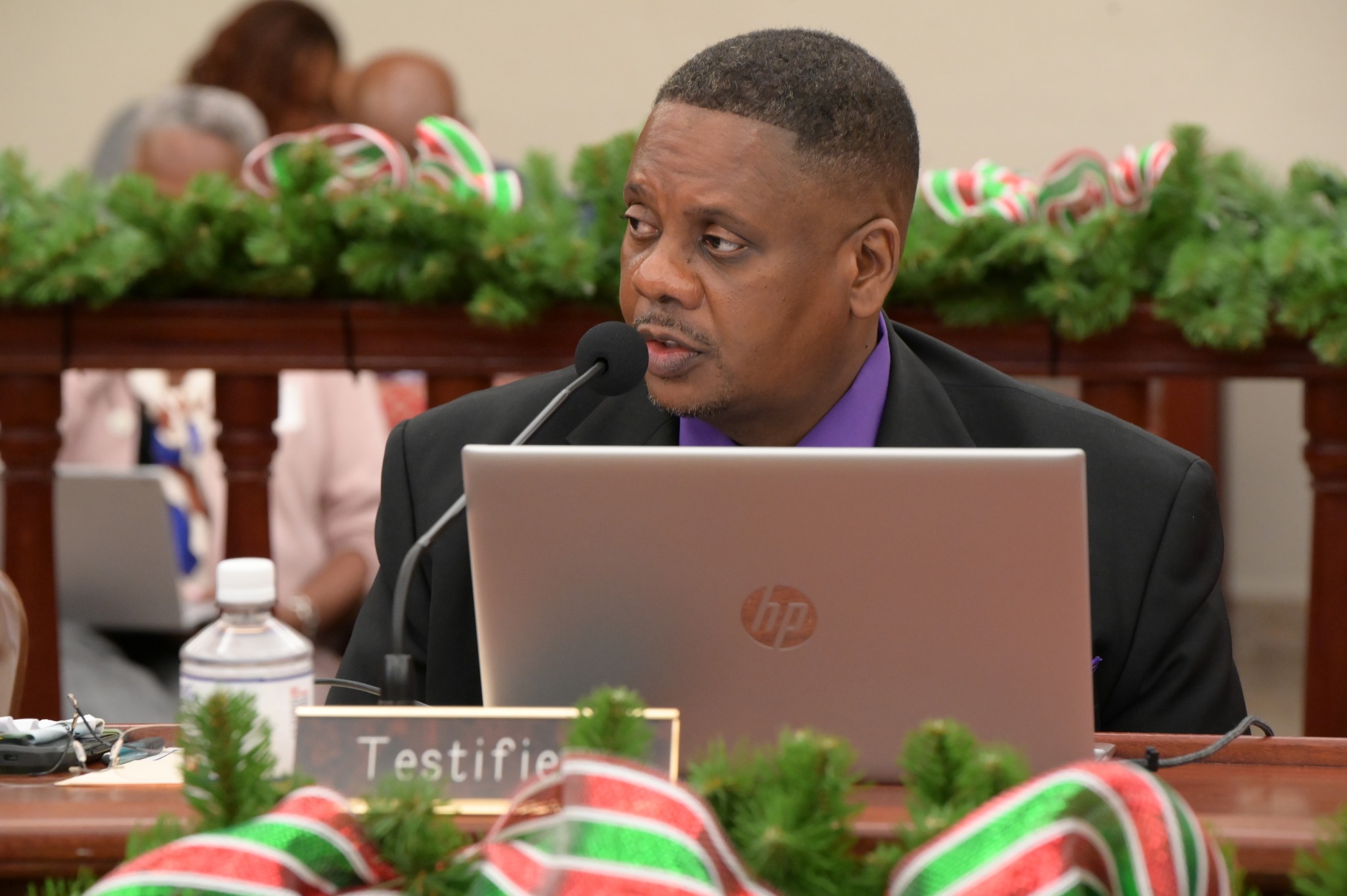
On Wednesday, the Committee on Health, Hospitals and Human Services forwarded two bills to the Rules and Judiciary Committee. One bill would protect newborn babies, and the second would give school-age children an essential link to some medical care.
The link would not be as accredited as the school nurses most schools once had.
Victor Somme III, assistant commissioner of the Education Department, reading the testimony of Education Commissioner Dionne Wells-Hedrington, said the school district could no longer attract school nurses, so the department was in favor of the bill which would require the hiring of a health technician for every public school in the territory.
The reason the district can no longer attract registered nurses, according to the commissioner’s testimony, is salary.
Somme read, “The department is not able to compete with nursing salaries offered by both hospitals and private medical practices.” He added that school nurses are on the same pay scale as teachers, with a starting salary of $49,000.
The Education Department’s testimony offered several recommendations for the bill. It asked that a section be added mandating the commissioner hire a school nurse supervisor in both districts. These supervisors would be licensed registered nurses or physician assistants empowered to hire and directly supervise school health technicians.
The department also recommended that a school health technician may be a licensed practical nurse, a certified nursing assistant, and an emergency medical technician who is trained and certified to provide basic first aid, essential life support, and cardiopulmonary resuscitation.
The Haven Newborn Protection Act was the other bill voted out of the committee favorably.
This bill would allow a parent who is in a crisis a way to relinquish a newborn infant to a safe environment. It would also allow the parents of the newborn infant to remain anonymous if they choose and avoid civil or criminal liability for relinquishing the infant.
Several senators asked testifiers if they had specific numbers concerning newborns being abandoned in ways that threatened the newborn’s life. They were told it did happen, but not in very high numbers.
“This act will enable parents to give up their newborn babies to authorized safe locations, such as hospitals or fire stations, without facing legal consequences or abandonment charges. I understand the significance of this act because Family Resource Center Inc. has been offering services to these parents and their newborns. We have seen those parents who are mostly young, frightened, and isolated when they deliver their children. They often convey their love for their newborn but realize they cannot offer them the care and stability they need,” Anya Stuart, executive director of the Family Resource Center, testified.
“This 17-year-old said, ‘I didn’t want to dump him in a trash can or on a doorstep. I wanted him to have a chance at a better life. That’s why I decided to take him to a safe haven. It was the most difficult decision of my life, but also the most responsible one. I am thankful that the law protected me from being prosecuted for doing what was best for my child.’ I hope that this act will help save the lives of innocent babies and give them the future they deserve,” Stuart said.
Darian Torrice-Hairston, executive director of Nana Baby Children’s Home, a 24/7 emergency placement group home on St. Thomas, also testified.
“Babies are abandoned illegally every year. In 2021 alone, 31 babies were placed in dumpsters, found in backpacks, or discarded in other dangerous locations,” said Torrice-Hairston. “According to the National Safe Haven Alliance, since 1999, approximately 1,610 babies were abandoned illegally, 915 of whom were deceased, but 4,427 infants were relinquished safely with Safe Haven providers (2023).”
Sen. Ray Fonseca, who chairs the committee, said about the proposed legislation, “You just know it has to be done.”
Sen. Kenneth Gittens said he supported the legislation but wondered whether the parent should be given more than 30 days to give the newborn to a Safe Haven. Two of the testifiers said extending it to 60 days might be good, but no longer because of the bonding that would be developing between the parent and child.
Executive Director of the National Safe Haven Alliance Heather Burner testified virtually at the meeting. “The law gives a desperate parent a safe alternative and saves the life of a vulnerable infant,” she said.


